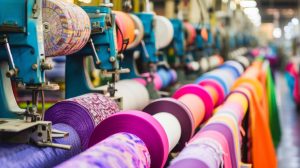As time progresses, sustainable and eco-friendly initiatives have become more prevalent, with experts turning to Earth’s natural resources to reduce pollution and environmental damage. This is precisely what Associate Professor Dr Kumar Krishnan, Assistant Head of Programme from the Faculty of Health and Life Sciences at INTI International University and his team aim to achieve. Their recent study focuses on banana and bamboo fibres – materials often discarded as waste after the primary products, such as fruit and bamboo sticks, have been harvested.

Associate Professor Dr Kumar Krishnan, Assistant Head of Programme from the Faculty of Health and Life Sciences at INTI International University, found strong antibacterial properties in banana and bamboo fibres.
These plant fibres, known as Natural Fiber Composites (NFCs), are gaining popularity for their excellent performance and eco-friendliness. Dr Kumar and his colleagues emphasise that NFCs are particularly significant in the shift toward sustainable development, offering an alternative to synthetic fibres, often considered “not environmentally friendly.” Natural fibres decompose naturally and are cheaper and lighter, making them a viable option for replacing traditional petroleum-based materials.
In their research, Dr Kumar and his team employed mechanical methods to extract fibres from banana and bamboo plants. The fibres were then subjected to a retting process to remove impurities. Their study revealed that these fibres possess low density and high strength, making them suitable for various industrial applications.

Bamboo and banana fibres are believed to have the potential to contribute to multiple industries, including the textile industry.
A key finding from the research is the strong antibacterial properties of both banana and bamboo fibres. This discovery aligns with existing studies and further enhances the appeal of these natural materials. “Considering the biodegradable properties of both fibres, they can be used for several applications,” Dr Kumar and his team stated. “They can be recycled or upcycled for use in the textile, automobile, and paper industries.”
The study concludes that banana and bamboo fibres are promising materials for industries aiming to adopt sustainable practices. By using agricultural waste, these industries can reduce waste and tap into renewable resources for manufacturing.
Dr Kumar’s research highlights the vital role that natural fibres can play in tackling environmental challenges. By actively promoting the use of banana and bamboo fibres, industries can pave the way for a more sustainable future, reducing their reliance on synthetic materials and contributing to a healthier planet.